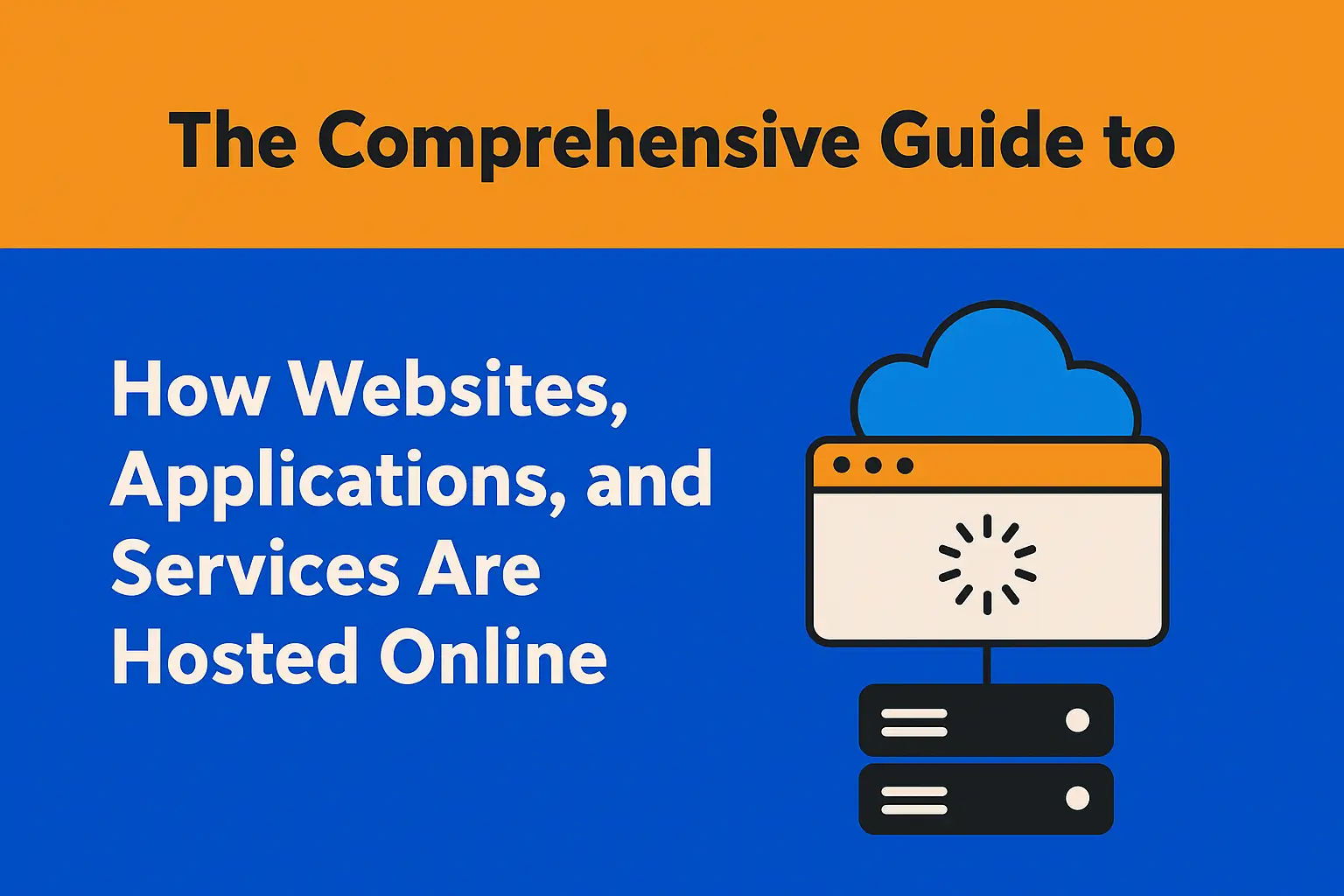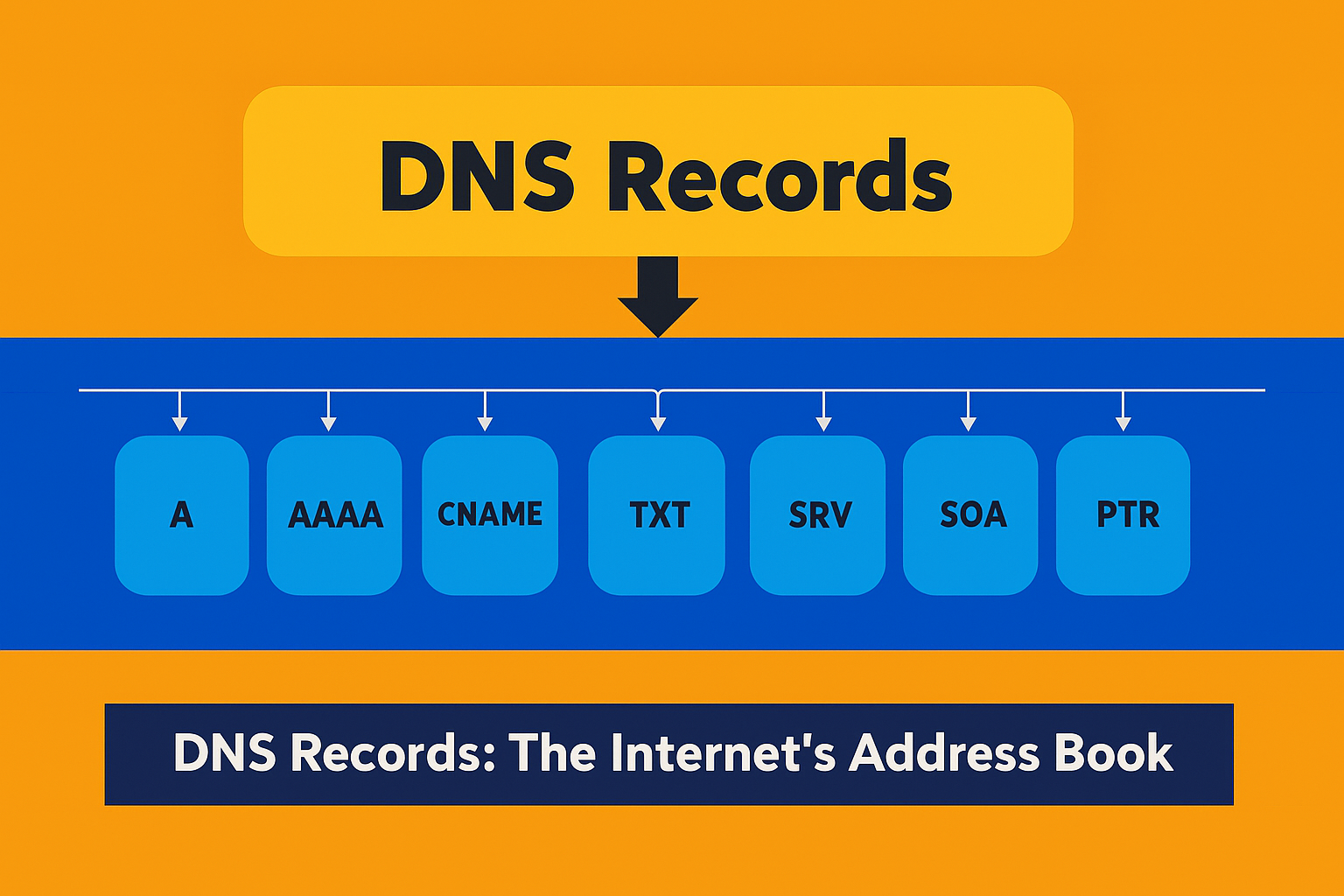
Introduction to Hosting Solutions
In today’s digital landscape, selecting the right hosting solution is a crucial decision for businesses aiming to establish a robust online presence. Two prominent hosting options available are Virtual Private Server (VPS) hosting and Cloud hosting. Each offers unique benefits and is suited to different business needs, making it vital to understand their respective features and capabilities.
VPS hosting operates by partitioning a physical server into multiple virtual servers, each with dedicated resources. This enables businesses to enjoy higher performance and reliability compared to shared hosting, as the resources are not shared with other users. VPS hosting is particularly useful for organizations requiring more control over their server environment and for those anticipating moderate to high website traffic.
On the other hand, Cloud hosting leverages a network of interconnected servers operating in unison, often referred to as a “cloud.” This approach provides unparalleled scalability and flexibility, as resources can be dynamically allocated to meet varying demands. Cloud hosting is ideal for businesses with fluctuating traffic patterns or those that require a more resilient and redundant hosting architecture.
Understanding the key distinctions between VPS hosting and Cloud hosting is essential for businesses looking to optimize performance, enhance security, and scale their operations effectively. The choice between these hosting solutions can significantly impact your website’s speed, reliability, and cost-efficiency, ultimately influencing your ability to meet customer expectations and drive business growth.
This blog post will delve deeper into VPS hosting and Cloud hosting, comparing their advantages, drawbacks, and use cases, providing you with the insight needed to make an informed decision for your business’s specific needs.
What is VPS Hosting?
Virtual Private Server (VPS) hosting represents a middle ground between shared hosting and dedicated server hosting, offering a blend of both in terms of cost-effectiveness and resources. In VPS hosting, a single physical server is divided into multiple virtual environments. Each of these virtual environments functions like a separate server, complete with its own operating system, bandwidth, and disk space. This partition is made possible through a hypervisor, a software layer that enables the creation and management of virtual machines.
One of the notable features of VPS hosting is the level of isolation it provides. Each virtual server operates independently of the others on the same physical hardware, ensuring that running processes in one VPS do not impact the others. This level of isolation allows for enhanced security and stability, making it a preferred choice for businesses requiring dedicated resources but not ready to invest in a full-fledged dedicated server.
The primary architecture of VPS hosting leverages virtualization technology to allocate a dedicated portion of the server’s resources to each virtual machine. Users of VPS hosting typically have root access, which allows for significant customization and control over their environment. This degree of control makes VPS hosting a popular choice for varying use cases, ranging from web hosting, testing new applications, and running development environments, to hosting websites with high traffic volumes or requiring specific configurations that are not achievable on shared hosting plans.
Moreover, VPS hosting is scalable. Businesses experiencing growth or increased traffic can easily upgrade their VPS plans to accommodate new requirements without experiencing downtime. By simulating the experience of having a dedicated server at a fraction of the cost, VPS hosting strikes a balance between budget and performance, making it an attractive option for small to mid-sized businesses.
What is Cloud Hosting?
Cloud Hosting is an innovative hosting solution that leverages multiple interconnected servers to distribute resources and maintain high performance. Unlike traditional hosting, which often relies on a single server, Cloud Hosting’s architecture ensures load balancing, redundancy, and optimized uptime by utilizing a network of servers. This distributed structure is a key differentiator, allowing websites and applications to seamlessly access additional resources as needed.
One of the most compelling features of Cloud Hosting is its scalability. Businesses experience fluctuating demands; thus, Cloud Hosting’s elasticity proves invaluable. Elasticity refers to the system’s capability to allocate more or fewer resources dynamically based on the current needs. For example, during traffic spikes, additional computing power, storage, and bandwidth can be provisioned instantly without manual intervention. This ensures consistent performance and avoids downtime.
Resource allocation in a cloud environment is managed through virtualization. Virtualization technology enables the creation of virtual machines (VMs) that operate independently on the same physical hardware. Through hypervisors, resources are effectively pooled and allocated to various VMs, ensuring that each instance operates efficiently without interference. This separation allows for optimal utilization of physical resources and enhances security through isolation of environments.
Moreover, Cloud Hosting offers enhanced reliability and uptime. Since data and tasks are distributed across multiple servers, the impact of a single server failure is minimized. Redundancy is built into the system, enabling automatic failover to another server in the network if one fails, ensuring continuous availability.
In essence, Cloud Hosting provides a flexible, scalable, and reliable hosting environment by utilizing a distributed network of servers. It is a robust solution for businesses looking to maintain high performance and adapt to changing demands seamlessly, making it a strategic choice in today’s dynamic digital landscape.
Performance and Reliability: VPS vs Cloud Hosting
When it comes to choosing the right hosting solution for your business, understanding the performance and reliability of VPS and Cloud Hosting is crucial. Virtual Private Server (VPS) hosting provides dedicated resources to users, thereby ensuring more consistent performance. Each VPS operates in isolation, effectively guaranteeing that the performance is not influenced by other users on the same physical server. This autonomy translates to reliable and predictable resource availability, making VPS an attractive option for businesses requiring stable, dedicated server performance.
In contrast, Cloud Hosting distributes your data across multiple servers. This distribution offers significant advantages in terms of uptime and failover solutions. Since your data isn’t reliant on a single machine, hardware failures in one server do not affect the accessibility of your site; the load is balanced across other servers in the cloud. This redundancy in Cloud Hosting results in superior uptime, often reaching levels of 99.99%, making it a viable choice for businesses prioritizing continuous availability and minimal risk of downtime.
Additionally, Cloud Hosting can manage traffic spikes more efficiently than VPS. The cloud’s elastic nature allows resources to scale seamlessly in response to increased demand, ensuring that even during high traffic periods, your site’s performance remains unaffected. On the flip side, while VPS hosting can be scaled, it typically requires manual adjustments and can be constrained by the physical server’s capacity.
While both VPS and Cloud Hosting have their merits, the choice between the two largely hinges on your business needs. If consistent, isolated performance with dedicated resources is your priority, VPS might be the better choice. However, if you need high availability, reliability, and scalability, Cloud Hosting stands out as the superior option. Evaluating these factors will guide you toward the hosting solution that best aligns with your business objectives.
Scalability and Flexibility
When evaluating hosting solutions, scalability and flexibility are paramount for businesses anticipating growth or fluctuating demand. Cloud Hosting stands out with its intrinsic ability to scale resources seamlessly. This is due to its nature of pooling multiple servers together, allowing for dynamic resource allocation. When demand spikes, businesses can effortlessly scale up their processing power, storage, and bandwidth with minimal intervention. Conversely, when demand drops, resources can just as easily be scaled down, ensuring cost-effectiveness.
In contrast, Virtual Private Server (VPS) Hosting offers a more static approach. While it does provide dedicated resources within a shared infrastructure, scaling up typically requires manual upgrades. This could involve purchasing additional capacity or migrating to a more robust server configuration, often accompanied by potential downtime and service interruptions. This manual aspect can be a drawback for businesses requiring real-time responsiveness to changing workloads.
Moreover, Cloud Hosting’s flexibility extends beyond resource management. It caters to diverse business needs by supporting a range of applications and workloads. With extensive API integrations and a broad spectrum of managed services, cloud environments enable easy deployment of advanced functionalities like machine learning or extensive data analytics. This flexibility ensures that businesses can adapt their hosting infrastructure to accommodate innovative solutions seamlessly.
VPS Hosting, while providing a degree of flexibility, is relatively limited by its fixed resource allocation. Scaling beyond the physical constraints of the given VPS environment often means transitioning to a new package or an entirely different setup, which can necessitate extensive planning and possible downtime. Although VPS provides control over the server environment, including root access for customization, the rigid nature of its scalability can be restrictive for rapidly evolving businesses.
Thus, for enterprises with highly variable workloads and the need for quick, seamless scaling, Cloud Hosting is the preferable solution. In contrast, VPS Hosting might suit businesses with more predictable, stable demands, where full control over the server environment is prioritized over rapid scalability.
Cost Considerations
When evaluating VPS Hosting versus Cloud Hosting, cost is a critical factor to consider for any business. The pricing structures, upfront costs, and ongoing expenses associated with these hosting options can significantly impact budgetary decisions and overall financial strategy.
VPS (Virtual Private Server) Hosting typically involves a more predictable pricing model. Businesses pay a fixed monthly fee that covers a specific amount of resources such as CPU, RAM, and storage. This fixed pricing makes it easier to predict and manage monthly expenses. Moreover, the upfront cost for VPS Hosting might include setup fees, but it offers a straightforward and transparent financial commitment. Small to mid-sized businesses that prefer predictable expenditures might find VPS Hosting appealing, as it helps in budget planning and forecasting.
On the other hand, Cloud Hosting employs a pay-as-you-go pricing model, which can be more flexible but less predictable. Instead of committing to a fixed monthly fee, businesses are billed based on the actual usage of resources. This model can be advantageous for companies experiencing fluctuating traffic levels or those who need to scale resources dynamically. Startups and rapidly growing businesses may find Cloud Hosting advantageous because it eliminates the need to pay for resources they do not use, aligning costs closely with revenue-generating activities.
While VPS Hosting offers cost predictability, Cloud Hosting provides scalability and flexibility. Businesses with steady, predictable workloads might lean towards the consistent costs associated with VPS Hosting. In contrast, businesses experiencing variable workloads or requiring rapid scaling may benefit more from the flexibility of the pay-as-you-go model in Cloud Hosting. Ultimately, the choice between VPS Hosting and Cloud Hosting should align with a business’s specific financial goals and operational requirements.
Security Features
When it comes to security in web hosting, both VPS (Virtual Private Server) and Cloud Hosting have distinct features worth considering. VPS hosting offers a dedicated portion of a physical server, partitioning it in a way that ensures isolation from other users on the same server. This level of isolation is a fundamental security benefit, as it minimizes the risk of your data being accessed by others. Additionally, VPS users have administrative control over their environments, allowing for customized security protocols and configurations tailored to individual needs.
Conversely, Cloud Hosting leverages a network of virtual servers that draw resources from physically distributed servers. This setup introduces an array of advanced security measures. One significant advantage is the automatic updates provided by many cloud service providers. These updates frequently address the latest security vulnerabilities, ensuring that your hosting environment is consistently protected.
Cloud Hosting platforms often incorporate robust distributed denial-of-service (DDoS) protections. These protections guard against malicious attempts to overwhelm your server with a flood of traffic, which could otherwise lead to downtime or compromised services. By utilizing load balancing and traffic filtering techniques, cloud services can effectively mitigate DDoS attacks, reducing the impact on your business continuity.
Compliance with industry standards is another critical aspect of Cloud Hosting security. Many providers comply with regulations such as the General Data Protection Regulation (GDPR) and the Health Insurance Portability and Accountability Act (HIPAA), offering an additional layer of trust for businesses handling sensitive information. These compliance mechanisms assure that data storage, processing, and transmission adhere to strict security protocols.
In summary, while VPS hosting provides robust isolation and control, Cloud Hosting brings advanced security features and compliance benefits. The ideal choice for your business depends on the specific security requirements and the overall architecture of your infrastructure.
Which Hosting Solution is Right for Your Business?
Choosing between VPS hosting and cloud hosting can significantly impact your business’s online presence and performance. When deciding on the most suitable hosting solution for your business, it is crucial to consider your specific requirements and future growth projections. Both VPS hosting and cloud hosting have unique attributes that cater to different business needs.
For startups and small businesses, VPS hosting is often a practical choice due to its affordability and comparatively straightforward management. It offers dedicated resources that ensure reliable performance and greater control over the server environment without the high costs associated with physical dedicated servers. VPS hosting can efficiently handle moderate traffic levels, making it ideal for companies in their initial growth stages or those with relatively static online requirements.
As your business grows, the need for more scalable and flexible solutions becomes paramount. Growing businesses with fluctuating traffic levels may find cloud hosting more appropriate. Cloud hosting stands out because of its scalable nature, allowing businesses to easily adjust resources based on current demands. This type of hosting is particularly beneficial for e-commerce websites, SaaS providers, or any business that experiences seasonal or unpredictable traffic patterns. Additionally, cloud hosting provides robust data redundancy and disaster recovery options, ensuring uptime and data security.
For enterprises with high traffic volumes and stringent data security requirements, cloud hosting is generally the recommended option. This type of hosting can distribute workloads across multiple servers, ensuring high availability and resilience. Moreover, cloud hosting solutions often come with advanced security features such as data encryption, compliance certifications, and extensive monitoring, which are crucial for protecting sensitive information and maintaining regulatory compliance.
Ultimately, the best hosting solution depends on evaluating your business size, growth trajectory, traffic expectations, and security needs. While VPS hosting offers simplicity and cost-effectiveness for smaller businesses, cloud hosting provides the scalability, flexibility, and security required by larger enterprises. Carefully assessing these factors will help you make an informed decision that aligns with your business objectives.
Conclusion
Understanding the fundamental differences between VPS Hosting and Cloud Hosting is pivotal for making an informed decision tailored to your business needs. Each service has its distinct advantages, and the choice largely depends on factors such as scalability, budget, and specific performance requirements. Recognizing the value each type can bring to your operation can guide you towards an optimal hosting solution.
If your business anticipates consistent, predictable growth and you value dedicated resources with control over server environment configurations, VPS Hosting can be an excellent choice. On the other hand, if flexibility, high availability, and seamless scalability are paramount, Cloud Hosting may offer the agility you need to adapt quickly to market changes.
Seeking expert advice from IT professionals is highly recommended to navigate this decision-making process. Their insights can provide clarity on the technical requirements and potential future growth, ensuring that your chosen hosting solution aligns harmoniously with your strategic objectives.
By thoroughly evaluating your business requirements and leveraging professional guidance, you can make a decision that not only supports your current operational needs but also promotes sustainable growth. The right hosting environment will serve as a solid foundation, enhancing your business’s overall performance and capacity to meet future challenges effectively.






0 Comments